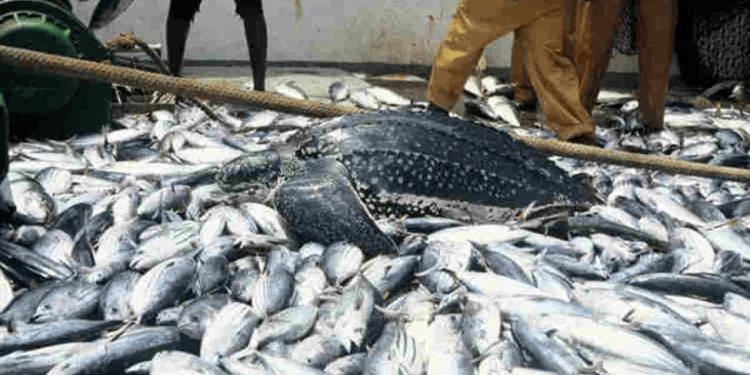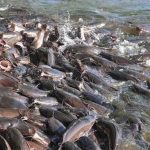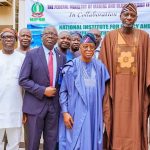The Nigerian government is collaborating with major international organizations to bridge the gap in fish production and meet local consumption demands, with a target of producing 1.3 million metric tonnes of fish annually. This initiative aims to strengthen the agricultural value chain, enhance food security, and increase revenue.
Minister of Marine and Blue Economy, Adegboyega Oyetola, announced this during a two-day workshop on Nigeria’s National Fisheries and Aquaculture Policy held in Abuja. He highlighted key challenges faced by the sector, including illegal fishing, environmental degradation, and lack of infrastructure. “To fully harness Nigeria’s aquatic resources, we’ve developed a comprehensive National Fisheries and Aquaculture Policy in collaboration with WorldFish and IFPRI,” Oyetola said.
The minister emphasized that with Nigeria’s 853 km of coastline and extensive inland waterways, the new policy aligns with President Bola Tinubu’s agenda for sustainable socio-economic development.
Adetunji Fasoranti, monitoring and evaluation specialist at the International Food Policy Research Institute (IFPRI), discussed the strategic shift from oil dependence toward agriculture. He said this shift, especially in fisheries and aquaculture, could reduce import reliance, create rural employment, and support food security. “This approach leverages Nigeria’s agricultural potential to build a diversified, resilient economy,” Fasoranti added.
IFPRI has committed to developing sustainable policies that address food security and poverty reduction. “It’s encouraging to see a strong focus on data and evidence in the drafting of this policy, along with a robust monitoring framework,” Fasoranti noted.
WorldFish representative Sunil Siri stated that Nigeria currently produces only 25% of its fish consumption needs, leaving a 75% gap. The organization, he said, is committed to helping Nigeria meet its food security goals through sustainable fisheries and aquaculture development.










